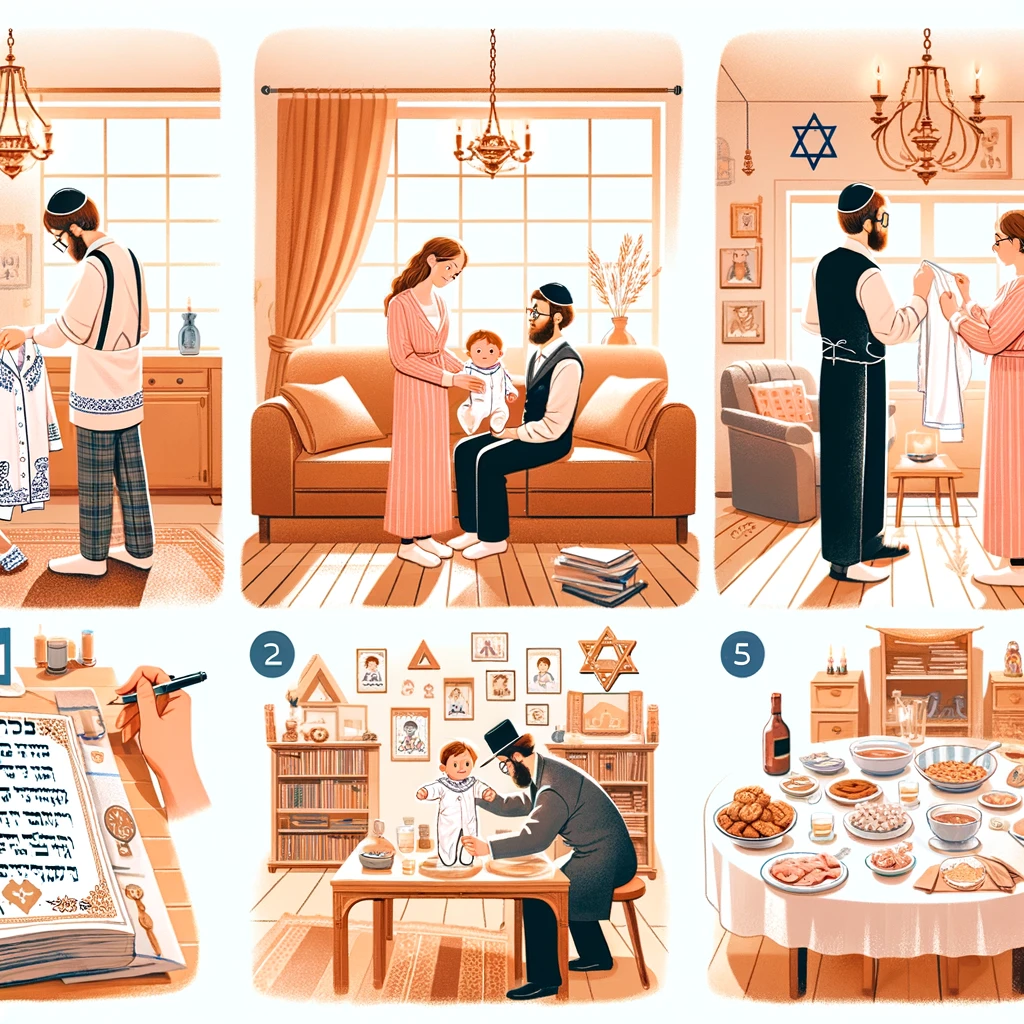The Journey to Becoming a Certified Mohel: Training, Certification, and Tradition
Qualified sap

 242
242 
The Mohel's Training Journey - Tradition, Professionalism, and Sensitivity
The role of the mohel in Jewish tradition is ancient and significant. It is a position that combines deep Torah knowledge, medical skill, and cultural sensitivity. The training journey of the mohel begins with Torah study and ends with official certification after rigorous examinations. In this article, we will unfold the journey that the mohel undergoes from the moment he begins his studies until he becomes a certified mohel, emphasizing the uniqueness and importance of this role in the Jewish people.
First Steps - Studying the Sources and Halacha
The journey to becoming a mohel begins with an in-depth study of the halachot and traditions related to circumcision. A mohel must have extensive Torah knowledge, as he performs one of the most important and complex commandments in Judaism. The studies commence with learning the halachic sources, including the Gemara, the Shulchan Aruch, and the rulings of the poskim throughout the generations. The mohel learns about the religious and spiritual significance of circumcision, which is the covenant between the Jewish people and their God, a bond that has accompanied the Jewish people since the days of Abraham our Father.
During his studies, the mohel receives close guidance from expert rabbis who lead him through the learning process. The rabbis explain the halachic nuances, the importance of performing the circumcision accurately, and the deep meanings accompanying the ceremony. For example, the study includes understanding the laws of circumcision on Shabbat, in special medical situations, and in cases of halachic doubts.
Comprehensive Medical Training - Essential Skills and Knowledge
Alongside the Torah studies, the mohel undergoes comprehensive medical training. The ability of a mohel to perform the circumcision safely and professionally relies on in-depth medical knowledge. During the training, the mohel learns human anatomy and physiology, focusing on the organs related to circumcision. He learns up-to-date surgical techniques, protocols for ensuring sterility and disinfection, and how to handle medical emergencies.
The training also includes hands-on apprenticeship under the supervision of experienced mohelim and expert doctors. This process allows the trainee mohel to acquire the skills needed to perform the circumcision safely while maintaining the health of the baby. During the apprenticeship, the mohel also receives training in handling unexpected situations, such as excessive bleeding or allergic reactions, and develops the ability to address medical challenges in real-time.
An example of a mohel who has undergone comprehensive medical training is Rabbi Shlomo Zalman, an experienced mohel who has been performing circumcisions for decades. Rabbi Shlomo Zalman ensures that he updates his medical knowledge by participating in medical conferences and workshops to ensure that every circumcision is performed at the highest professional level.
A Bridge Between Tradition and Community - Developing Cultural Sensitivity
Beyond the halachic and medical skills, the mohel is also required to have cultural sensitivity and the ability to listen to the needs of the families he serves. Each Jewish community has its own unique customs and traditions, and the mohel must know how to adapt to the different sensitivities and expectations. The role of the mohel is not only to perform the circumcision technically, but also to serve as a linking chain between the ancient tradition and modern reality.
For example, in Hasidic communities, the mohel may perform the circumcision in a more traditional manner, preserving ancient customs. In other communities, certain adjustments may be needed to meet the families' expectations, such as performing the circumcision in a more intimate setting or providing detailed explanations to the family about each stage of the ceremony.
Official Certification - A Seal on the Training Journey
After completing all stages of study and training, the mohel approaches the certification exams before a committee of rabbis and doctors. The examinations include a thorough assessment of his proficiency in halacha, his medical skills, and his overall suitability for the role. The tests are not easy, requiring the candidate to demonstrate mastery of all aspects of the position.
The certification serves as an official confirmation that the mohel has successfully completed his training journey and is worthy of holding the important and esteemed position of a mohel. This certification is granted after a thorough review of all training aspects and represents the quality seal of the mohel as an expert in his field.
Conclusion - Legacy and Responsibility for Future Generations
The journey of the mohel is not limited to the acquisition of knowledge and skills. It is a profound process of identity building that connects the mohel to a rich Jewish heritage and to the chain of generations that preceded him. In every circumcision he witnesses, he becomes a partner in the eternal covenant between the Jewish people and their God. The mohel carries a heavy responsibility for the continuity of the tradition and for connecting the next generation to it, with commitment, integrity, and love for others.
Questions and Answers:
Are there any prerequisites to start the training process as a mohel?
Yes. A candidate for the position of mohel must be observant of Torah and mitzvot, have a solid Torah background, and a deep commitment to the tradition of circumcision. In addition, emotional maturity and high learning ability are required to meet the training demands. In many cases, the candidate is already engaged in Torah study or teaching before deciding to learn to become a mohel.
What is the typical duration of a mohel's training process?
The duration of the training varies according to the individual's background and learning pace. On average, the process takes between two to four years, including intense studies in halacha and medicine, practical apprenticeship, and preparation for certification exams. Often, the candidate continues to study and improve even after receiving certification to maintain their professional level.
Is the certification of a mohel valid for life?
Generally, yes. However, a mohel is required to continue to update himself throughout his career on current halachic rulings and medical innovations. In certain cases, a refresher or re-examination of skills may be needed to continue serving in the position. Participation in training and workshops is an integral part of a certified mohel's career.
The training journey of the mohel is a testament to the eternal importance of circumcision in the Jewish people. Through his deep commitment, professionalism, and sensitivity to others, the mohel ensures the continuity of this precious tradition, giving it a living and breathing expression in every generation. The mohel's role is not only to perform the circumcision but also to preserve and transmit the Jewish heritage to future generations, out of love and deep faith in the eternal covenant between the Jewish people and their God.






